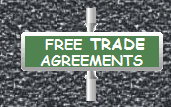  |
|
Pocahontas Star Arrested for filming with phone at Secretive Free Trade Talks Actress Q’orianka Kilcher returns to VA to demand release of controversial TPP texts
September 14, 2012
Interviews and High Resolution Images Available
Contact: Laurel Sutherlin 415.246.0161 laurel@ran.org
Lansdowne, VA – Actress Q’orianka Kilcher was arrested yesterday evening at an upscale golf resort in Virginia after helping to deliverer over 350,000 protest signatures to an official with the US Trade Representatives negotiating team. The actress, producer and activist was filming an interaction between other activists and police officers outside the hotel where the meetings are taking place when she was suddenly handcuffed and arrested for trespassing. In a choppy video recorded on her cell phone, an officer can be heard saying “are you filming this? That’s it! You’re trespassing!” at which point the clip ends abruptly as she is arrested.
Ms Kilcher’s arrest occurred immediately after she joined with representatives of Rainforest Action Network and Avaaz.org in a scheduled meeting to deliver over 350,000 petition signatures opposing the Trans Pacific Partnership and calling for transparency for these high stakes negotiaions.
Ms. Kilcher, who played Pocahontas in the Oscar-nominated film “The New World,” is founder of Youth for Truth and the Action Hero Network. Her Twitter profile says: “Video cameras are such a powerful weapon of truth against human rights abuse and government oppression, violence and discrimination. Its about educating people!” In 2009, she personally brought 50 video cameras to Peruvian youth to empower people there after the massacres that occurred there.
Ms. Kilcher traveled to Virginia this week for the first time since she was here to play Pocahontas in the 2005 film The New World, to participate in protests against the Trans Pacific Partnership negotiations.
In a statement prior to her arrest, Q’orianka Kilcher stated “the Trans Pacific Partnership is being negotiated in secret to hide the content, because these agreements would never see the light of day if US citizen and congress would be allowed to see the secret documents. While hundreds of corporate advisors have access to the information contained within these documents, the American public and even members of congress do not.
“This sort of secrecy is highly undemocratic and not only a direct blow to our democracy but a complete disregard of all the systems of checks and balances established by the U.S. Constitution to avoid exactly this sort of thing.”
Ms. Kilcher’s arrest follows a week of rallies, protests and civil disobedience opposing the Trans Pacific Partnership negotiations this week. A rapidly growing movement is organizing to oppose the unprecedented lack of transparency surrounding the Obama Administration’s handling of the TPP discussions. While 600 corporate lobbyists have been allowed access to and input on the draft texts from the beginning of negotiations three years ago, the public and even high ranking members of US Congress have not been allowed to see what is being proposed on their behalf.
Draft texts of the proposal have appeared on Wikileaks and the website of Citizen’s Trade Campaign.
“Labor leaders, environmentalists, healthcare advocates and internet privacy proponents are seriously concerned that while the TPP is referred to as a 'trade agreement,’ in actuality it reads like a wish list of transnational corporations to implement a binding system of global corporate governance.” Said Laurel Sutherlin of Rainforest Action Network. “Of the 26 chapters under negotiation, only a few have to do directly with trade. The other chapters enshrine new rights and privileges for major corporations while weakening the power of nation states to oppose them. The TPP essentially proposes to establish a parallel system of justice where companies can sue countries in a tribunal of judges composed of unaccountable international trade lawyers with little to no process for appeal.” |















